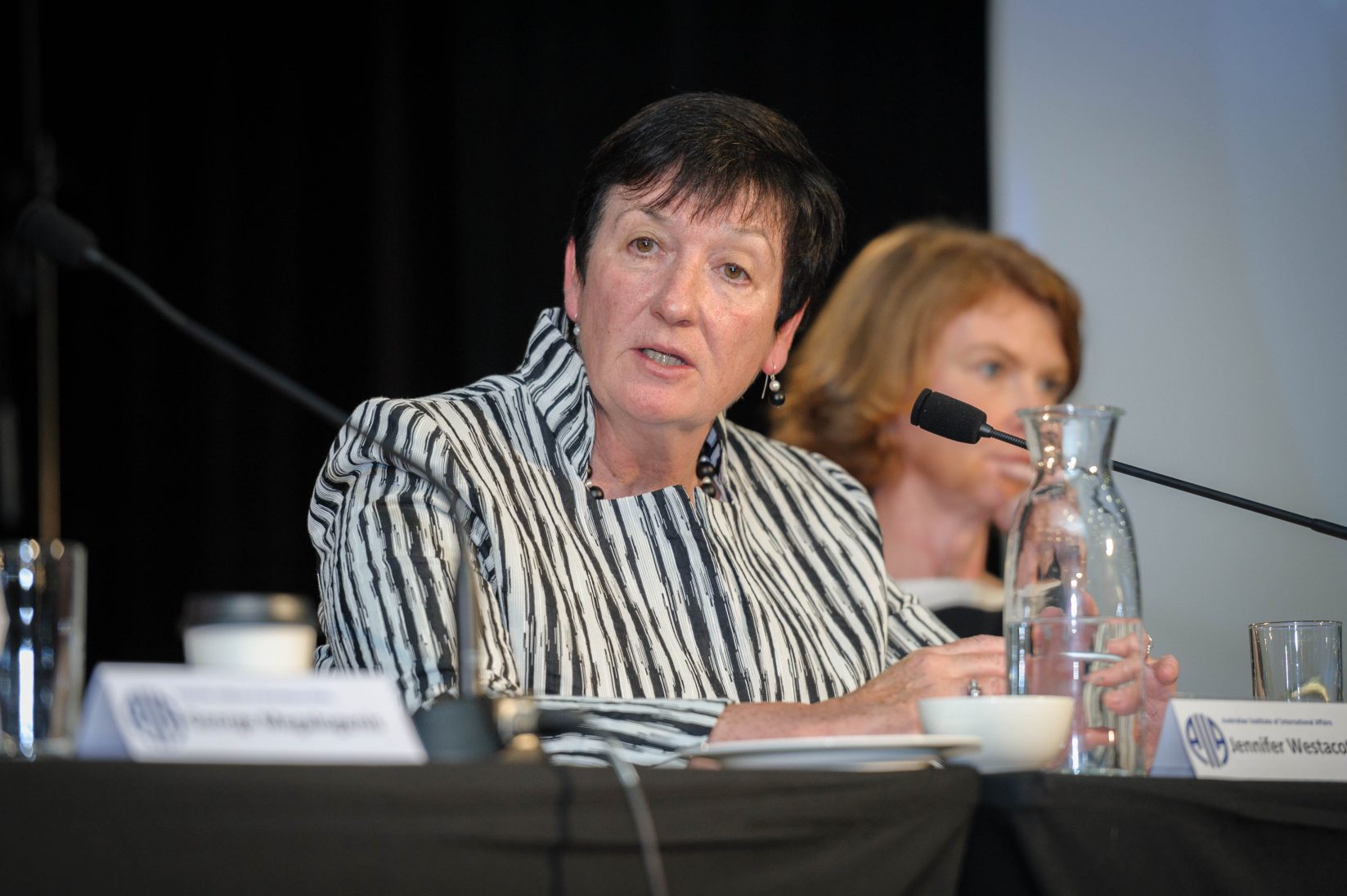Why Brexit and Trump Will Not Occur in Australia

We have experienced some seismic international events over the last 12 months with the Brexit decision and the United States election. Those events have raised questions here in Australia and people are legitimately asking, is Australia next?
My fundamental proposition is that we don’t have the antecedents of what led to Brexit and the election of Donald Trump. But, and it’s a very important ‘but’, we need to guard against forces that could create such an environment.
We need to protect and improve the factors that have driven our living standards and our social cohesion.
Is Australia next?
In explaining my proposition I want to start with some observations about the recent events in the United Kingdom and the United States.
There is no unequivocal answer about the complex forces that led to Brexit and Donald Trump’s election as US President. But at the core of both decisions was a rejection of the establishment and a failure to make the middle class and low income earners better off. And, to make them feel better off.
By establishment I mean politicians, major political parties, big business, the media and the commentariat.
I think some of the votes were in anger, and some in protest. And the outcome of both events reflect deeply divided nations, more so in the case of the United States.
My thesis is that one of the biggest drivers of the divide in these nations is the lack of a sense of shared prosperity. There have been some suggestions that our own unexpected election result with the shift to minor parties suggests we are going down the Brexit and Trump path.
I can see why commentators argue that, but I think there are tremendous risks of overstatement and like-for-like comparison. Because I believe that Australia is a very different country to the United States or the United Kingdom.
Differences that do not create the same environment for the trends we have seen in other parts of the world.
Different value systems
Let me spell out the differences.
The United Kingdom has a long history of aristocracy and subsequent class hierarchy, and colonialism that contributes to the nation it is today. That history was never going to make it a good fit with the European Union.
The United States, like Australia, benefits from being a young nation. And young nations need to forge their identity. As David Hackett Fischer discusses in Fairness and Freedom, the United States defined itself around freedom.
The platform from which our young nation built itself was fairness.
But from its very beginnings, the United States has been a deeply divided nation. The United States Civil War reflected this division. The closest Australia has come to major civil unrest was the Eureka Stockade in 1854, and the Great Strikes in the shearing and maritime industries in 1891 and 1894.
The Civil War ended slavery in the United States, but it left a chasm. It left a class of citizen that continues to this day to face ingrained discrimination. And it also left a relatively impoverished South.
In contrast, the Great Strikes left our yet to be federated nation with a choice. How would we define ourselves? Would we adopt our English heritage of a hierarchical class structure, or abandon it and recognise workers? Our country chose the latter and it defined itself by fairness.
One of the first debates in the Australian Parliament was about establishing an arbitration court for workplace relations. As a result the first Australian award with a minimum wage was established in 1906. That first award and minimum wage, were about establishing rights for workers. It was part of the fairness that Australia became known for.
The divides in the United States, be they racial, geographical, or economic, make for a very complex set of social divisions and are the antecedents of a substantial backlash against the establishment. Australia has a very different society. While we have largely failed Indigenous Australians, and have pockets of entrenched disadvantage, and some worrying trends in inequality…we do not have the same deeply entrenched and pervasive divisions as the United States.
So it is my contention that Australia has a different value system and societal structure to both the United States and the United Kingdom—which, if nurtured, will be our greatest protection.
Social services
This value system is reflected in both our social services and our safety net, particularly compared to the United States.
We have a mass education system. One that now extends into higher education.
In so many aspects of Australian life, there is a sense of protecting vulnerable people. The old age pension, the unemployment benefit, the disability pension itself.
And while I’d be the first person to suggest they all need some modernisation, when they are under threat the community pushes back very hard.
Shared economic growth
Australia is also unique in recent economic history.
As a result of committed reforming governments in the 1980s and 1990s, and our mining boom, Australia has experienced 25 consecutive years of economic growth.
And our values are reflected in the fact that growth has largely been shared across the country.
The average Australian’s real income per capita has doubled over the last 40 years.
And when you look at Australia compared to other countries in the OECD, the growth rate for the poorest households in Australia exceeded that of the highest-income households in most OECD countries.
Lessons to learn
So, what are the specific lessons we need to learn? What do we need to protect?
I think there are two things we need to focus on.
The first is we need to listen to citizens. We need to listen to where the discontent is, why the discontent exists, and ensure our institutions can respond.
But most importantly, we need to protect our capacity to grow. And we need to continue to ensure that everyone enjoys the dividends of growth.
And that growth improves people’s quality of life, their sense of fulfilment and purpose, protects their choices, and offers opportunity.
This is an extract of Jennifer Westacott’s address to the AIIA’s 2016 National Conference. Jennifer Westacott is the chief executive of the Business Council of Australia. The full transcript of her speech is available here.
This extract is published under a Creative Commons Licence and may be republished with attribution.




